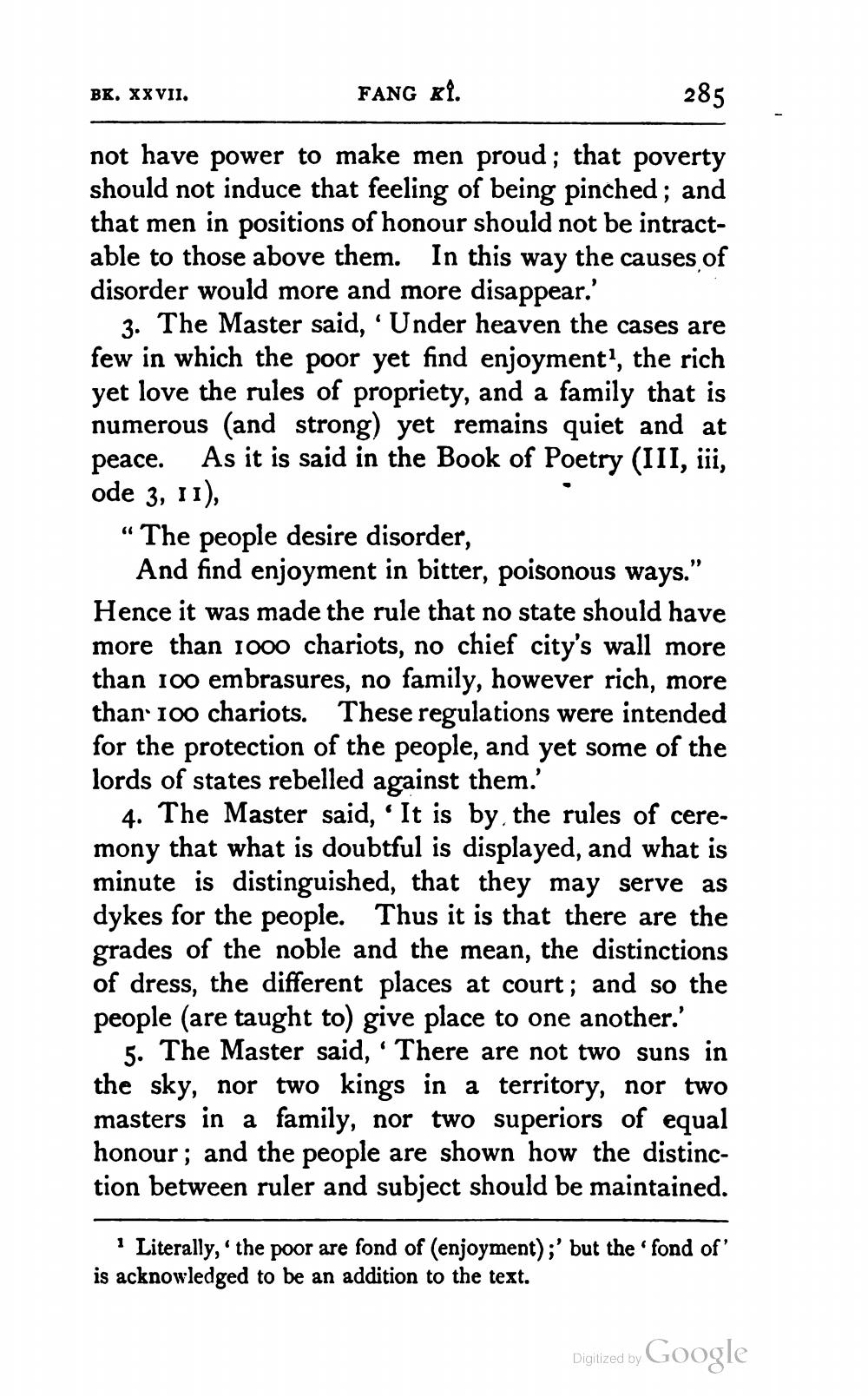________________
BK, XXVII.
FANG ki.
285
not have power to make men proud ; that poverty should not induce that feeling of being pinched; and that men in positions of honour should not be intractable to those above them. In this way the causes of disorder would more and more disappear.'
3. The Master said, ' Under heaven the cases are few in which the poor yet find enjoyment, the rich yet love the rules of propriety, and a family that is numerous (and strong) yet remains quiet and at peace. As it is said in the Book of Poetry (111, iii, ode 3, 11), “The people desire disorder,
And find enjoyment in bitter, poisonous ways." Hence it was made the rule that no state should have more than 1000 chariots, no chief city's wall more than 100 embrasures, no family, however rich, more than 100 chariots. These regulations were intended for the protection of the people, and yet some of the lords of states rebelled against them.'
4. The Master said, 'It is by the rules of ceremony that what is doubtful is displayed, and what is minute is distinguished, that they may serve as dykes for the people. Thus it is that there are the grades of the noble and the mean, the distinctions of dress, the different places at court; and so the people are taught to give place to one another.'
5. The Master said, 'There are not two suns in the sky, nor two kings in a territory, nor two masters in a family, nor two superiors of equal honour; and the people are shown how the distinction between ruler and subject should be maintained.
Literally, the poor are fond of (enjoyment);' but the fond of' is acknowledged to be an addition to the text.
Digitized by Google




